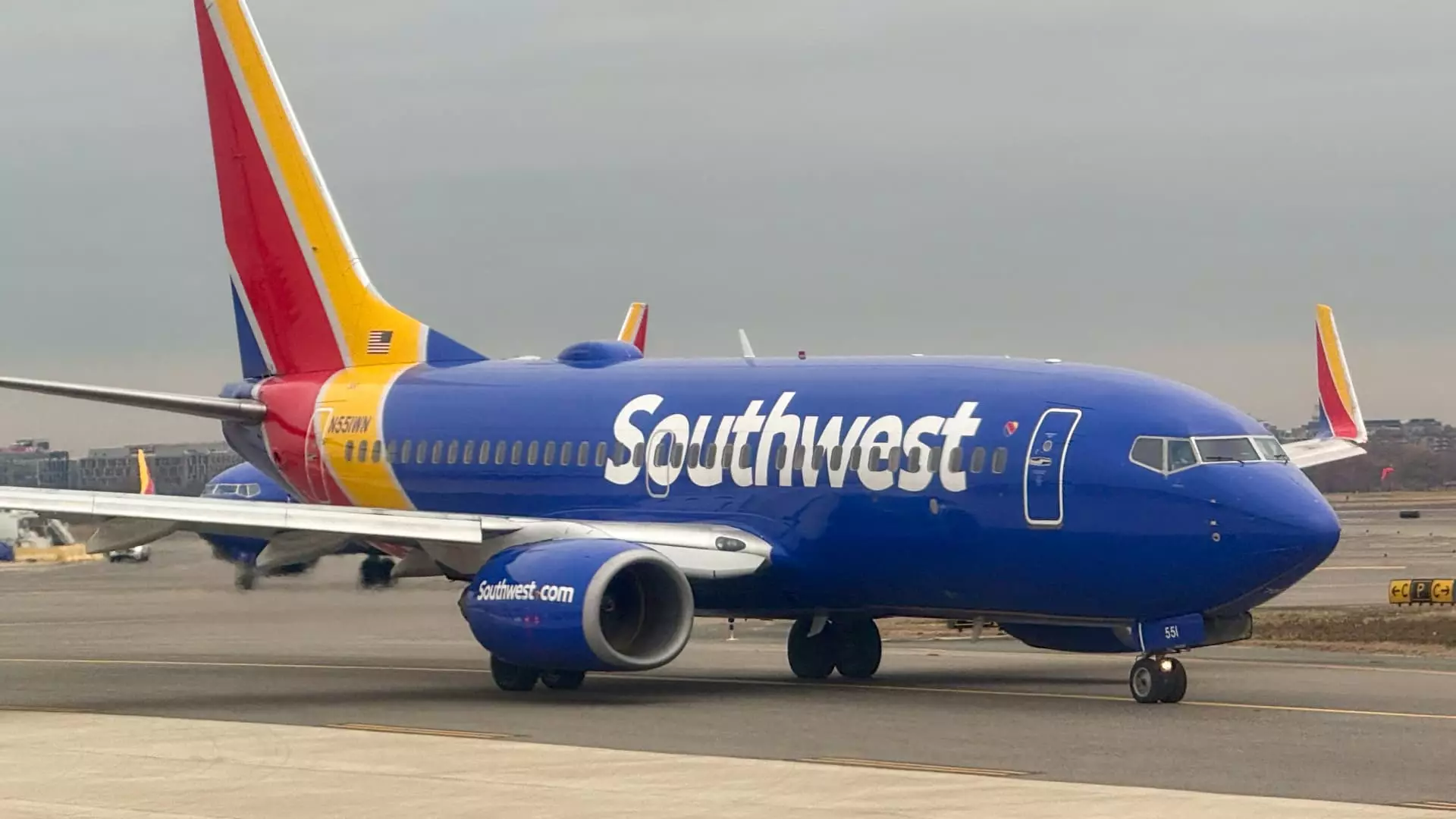In a significant move towards financial prudence, Southwest Airlines has announced a temporary halt to corporate hiring and promotions, as well as the suspension of most summer internships. This decision, conveyed by CEO Bob Jordan to employees, signals the airline’s commitment to consolidating resources while striving for improved profit margins and financial health. Jordan emphasized the importance of each dollar as the airline navigates its path back to robust financial performance, illustrating a clear acknowledgment that immediate action is necessary to avert deeper fiscal challenges.
The cost-reduction measures do not stop at hiring; they extend to the suspension of long-standing employee traditions, notably the company’s “rallies.” This initiative, which has been in place since 1985, served to foster a sense of community among staff by allowing them to hear directly from leadership and engage in shared experiences. By curtailing these events, Southwest is potentially sacrificing not only morale but also the cohesive company culture that such gatherings historically reinforced. This raises questions about the balance between immediate fiscal responsibility and long-term employee engagement, a critical component in an industry where service excellence is paramount.
Southwest has faced substantial external pressures, particularly from activist investor Elliott Investment Management. Since their intervention last year, which resulted in a settlement giving Elliott five board seats, the airline has had to navigate a complex relationship with stakeholders while striving to fulfill its financial objectives. Despite Jordan’s assurances of progress made in 2024 regarding the airline’s operations and profit strategies, he also remarked on the risks posed by complacency as the company gears up for 2025. The imperative to maintain momentum in profitability and efficiency is evident in his communications, pointing to a cautious optimism tempered by the realities of competitive pressures.
Restructuring Service Models for Profitability
Looking ahead, Southwest is implementing a comprehensive strategic overhaul to revitalize its business model. Notable changes include the abandonment of the airline’s long-held open seating policy in favor of a more traditional assigned seating arrangement, along with the introduction of a premium section featuring extra legroom. These adjustments are designed to enhance customer experience while also strategically targeting revenue increases. By shifting focus to more profitable routes and service formats, the airline is working to reclaim a competitive edge in an industry marked by fierce competition.
As Southwest Airlines contemplates its fourth-quarter financial results and broader market performance, the steps taken by its leadership reflect a stark understanding of the current aviation landscape. With shares experiencing a modest uptick over the past year, the company still has a considerable distance to cover compared to rivals like United Airlines, which has seen a more than 160% increase in stock value. For Southwest, the forthcoming quarter is not just a measure of financial stability; it will be a pivotal period for reassessing strategies, managing stakeholder expectations and reinvigorating employee morale in the face of significant operational challenges. The road ahead will require not only corrective actions but also a renewed commitment to the foundational principles of service and employee engagement that have long defined the airline.

